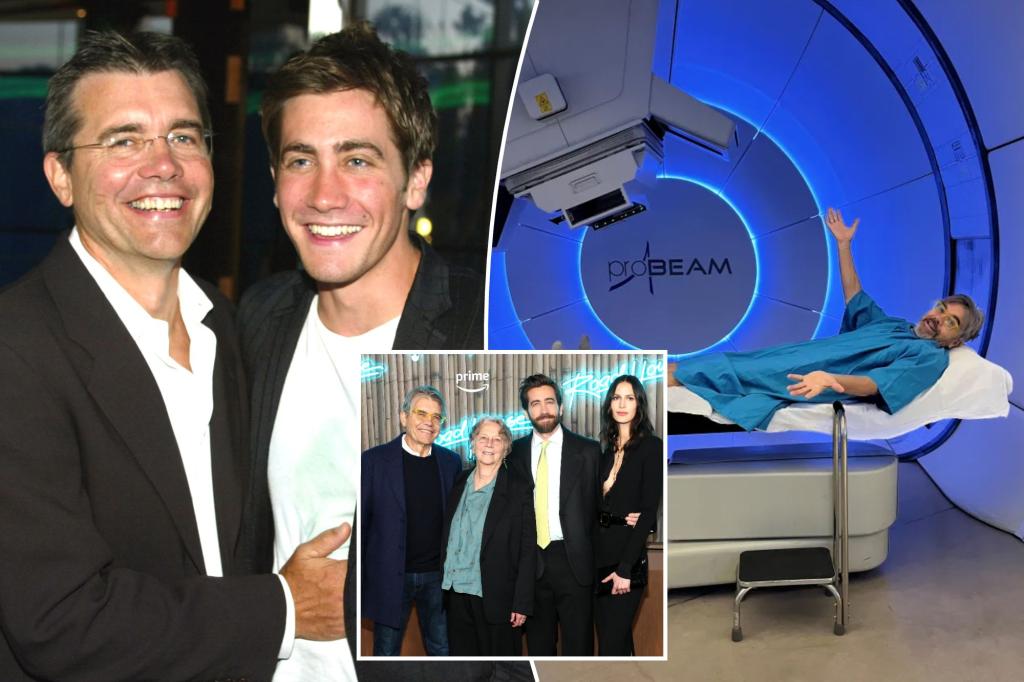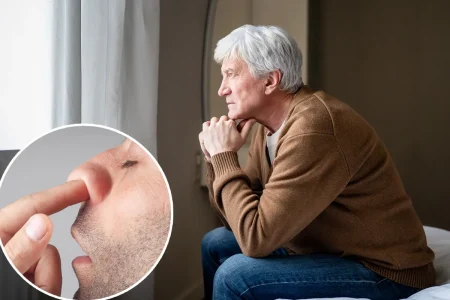A Director’s Journey Through Prostate Cancer: Stephen Gyllenhaal Shares His Story
Stephen Gyllenhaal, the 75-year-old director and father to acclaimed actors Jake and Maggie Gyllenhaal, recently opened up about his battle with prostate cancer for the first time. His journey began unexpectedly at a swimming pool with his 10-year-old son Luke last year. “My arms and legs suddenly felt as thick as elephants, and I could hardly move,” Gyllenhaal recalled. This frightening episode, followed by three days of being unable to urinate, led to a diagnosis that would change his perspective on life: prostate cancer that had spread to a nearby lymph node. For years, Gyllenhaal had taken a wait-and-see approach to his enlarged prostate and elevated prostate-specific antigen (PSA) levels, two warning signs he hadn’t fully addressed. As September marks Prostate Cancer Awareness Month, Gyllenhaal is sharing his story to encourage others to take a more proactive approach to testing and disease management. “Just stay on top of it because almost all the time, you’re relieved,” he advises. “You say, ‘I’ve got another two years before I have to do anything again,’ and it really matters to do that. If something comes up two years later, you’ve caught it early, and you deal with it, and you don’t die.”
Prostate cancer remains the most common cancer among American men aside from skin cancer, with nearly 314,000 new cases and over 35,000 deaths expected this year according to the American Cancer Society. It stands as the second leading cause of cancer death in men, behind only lung cancer. Gyllenhaal’s journey with prostate health issues began years ago when his doctor first noted his enlarged prostate, but the situation escalated in 2020 with elevated PSA readings. Even after receiving a Gleason score of 5 in 2022 (on a scale where higher numbers indicate more aggressive cancer), Gyllenhaal admits he was distracted by the pandemic and “it didn’t quite register” that his condition could be serious. Everything changed after the pool incident in October 2024, when his Gleason score jumped to 9 and his PSA level reached 42—far above the abnormal threshold of 4. The inability to urinate stemmed from a bladder infection, but as Gyllenhaal put it, “My prostate was out of control.” This alarming development propelled him into immediate action, seeking consultations with friends and medical professionals.
Gyllenhaal’s search for treatment led him to Dr. Arpit Chhabra, a radiation oncologist and education director at the New York Proton Center in East Harlem. Among the various approaches to treating prostate cancer—including complete prostate removal, conventional radiation therapy, or freezing cancer cells with focal therapy—Gyllenhaal opted for proton therapy. This advanced treatment uses charged particles to deliver precisely targeted radiation to tumors while minimizing damage to surrounding healthy tissue. “Proton therapy allowed us to deliver this curative treatment with the greatest precision and safety, minimizing side effects to surrounding organs,” Dr. Chhabra explained. For nearly eight weeks, Gyllenhaal temporarily relocated from his Hollywood Hills residence to his daughter Maggie’s place in Brooklyn to undergo treatment. Despite the difficult circumstances, he found unexpected beauty in his daily commute to the facility, appreciating the sunrise on his way to treatment sessions.
While Gyllenhaal experienced minimal side effects from the radiation itself, he has faced challenges from the hormone medications that are part of his treatment plan. Taking Orgovyx, which reduces testosterone production, and Nubeqa, which blocks testosterone from fueling cancer cells, has led to noticeable physical and cognitive changes. “There’s no question about it, that’s been the hardest thing,” Gyllenhaal shared about his lower testosterone levels, which have caused weight and muscle mass loss. He also struggles with short-term memory issues as a side effect of the hormone therapy. Despite these challenges, Gyllenhaal maintains an optimistic outlook on his prognosis. “I don’t understand the proton stuff, but it has definitely made my life kind of feel miraculous,” he reflected, “and has me hopeful about the future.”
Gyllenhaal’s diagnosis carries implications for his family as well, particularly for his sons Jake, 44, and young Luke, who now face an increased risk of developing prostate cancer themselves. Gyllenhaal praised Jake for being “so on top of this” health concern, noting that his son had already consulted with top specialists who reassured him that his father was receiving optimal care. The director has also begun having age-appropriate conversations with his young son Luke, planning to continue these discussions as he grows older. For men generally, health guidelines recommend that those at higher risk of prostate cancer begin testing between ages 40 and 45, while men at average risk should start between 45 and 50. Regular screening every two to four years is advised for men between 50 and 69 years old. These recommendations underscore the importance of early detection that Gyllenhaal now advocates for so passionately.
Though Gyllenhaal has completed his proton therapy treatment—marked by the traditional ringing of the bell at the Proton Center—he hesitates to declare himself cancer-free. He continues with hormone therapy and takes medication for his heart condition. Remarkably, despite the challenges he’s faced, Gyllenhaal has developed a perspective that might surprise many. “This sounds glib, but it’s kind of the best thing that’s ever happened to me,” he reflected, explaining that while many things have caused him stress throughout his life, facing cancer has overshadowed them all. “It kind of means you have to wake up and face life and not live in a fantasy,” he added, with a nod to his career in the entertainment industry: “I live in Hollywood, so ‘fantasy’ is my middle name, and it takes the stress out.” Gyllenhaal is now contemplating writing a book about his wellness journey, suggesting that his confrontation with mortality has paradoxically brought him a new appreciation for life and its realities.















